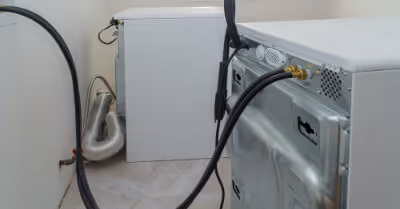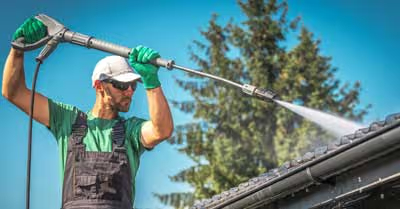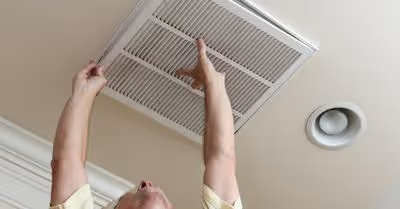Table of Contents
Breaking Down the Costs of Selling a Home
As we’ve just noted, the cost of selling a house can depend on a number of factors such as the government requirements, the current real estate market, and the local custom. While these factors vary and may affect the cost of selling your home depending on where you live, the cost of sale is generally negotiable. For example, a buyer might be put off if most sellers in your area are willing to pay for transfer taxes and you’re unwilling to.
As such, let’s break down the costs of selling a house.
Home Preparation
Home preparation costs may not be closely associated with closing costs but are an important part of selling a house. This is because you’ll want to ensure that the house is market-ready and can attract interested buyers. Here are the main costs to consider when prepping your house.
Staging Costs (1% of the sale price)
Staging your home before showing it to prospective buyers is extremely important as it can increase your home value by 6% to 10%. You, of course, want potential buyers to focus on the home’s best features, visualize themselves in the living space, and make get attracted will little but very crucial touches.
Staging the house for sale should involve decluttering, arranging the furniture, painting the house, fixing lights, and adding décor or decorative accessories that will make the house visually appealing to the potential buyers. Depending on where you live, the average cost of hiring a professional stage ranges from $2,300 and $3,200. You can, however, save this money by staging the home yourself but you have to solicit ideas and invest a great deal of your time and effort in doing this.
Landscaping Costs (1% of the Sale Price)
First impressions are fundamental when selling a house and the exterior is what should first attract potential buyers. In essence, the curb appeal of your home is just as important as the inside as it can lure buyers, especially those who use photos to compare homes or those who shop online.
Landscaping costs will cover areas such as mulching, planting of flowers, pruning shrubs, creating walkways, and making sure that the exterior of your home looks as appealing as possible. This can cost you a few hundreds of dollars but will also depend on the size of the yard and the type of landscaping job you want to be done.
Home Repairs, Maintenance, and Improvements (Varies)
Home maintenance and repairs are some of the main reasons that may lead to the failure of an impending home sale. It’s, therefore, of great importance to inspect the home for damaged features such as broken appliances and old systems. Any damaged or broken part of your home should be prepared and upgraded with features that will attract buyers.
You should organize for a pre-inspection to assess and pinpoint areas that need to be fixed. Keep in mind that these costs will vary depending on the extent of the damages, what needs to be fixed, and the general condition of your home.
Professional Photos and Marketing Costs ($200-$300)
This may be a small cost associated with selling a house but it’s extremely important in selling your house as they’ll attract potential buyers. Whether you’re selling on your own or listing your house, it’s important to involve the costs covering photos, flyers, and signs.
Real Estate Agent Commission (5%-6%)
Real estate agents play a critical role in selling your house. In addition to handling the selling part, agents often schedule paperwork, arrange tours, and update your listings. These are services that save you time and quicken your sale and so you won’t get them for free.
While the commission is around 5% to 6%, they’re generally split between your agent and the buyer’s agent. You can, however, choose to fly solo without an agent but this would mean that you still have to cover the commission of the buyer’s agent if he/she is represented by one, though you’ll have to pay 3%.
Sellers Concessions (1.5%-2%)
A concession is generally an agreement by the seller that he/she will pay certain costs for the buyer. This is typically to sweeten the deal so that the buyer can agree to close the deal. For example, you can cover inspection fees. A seller concession is usually used by a buyer as a bargaining tool to offset some costs.
Closing Costs (1%-3% of Sale of Price)
Closing costs are a collection of fees that are separate from agent commissions and should be paid by both the buyer and the seller at the close of the deal. Closing costs are typically lower for the seller and can include:
Transfer Taxes
These apply when transferring the title of the house from the seller to the buyer. This can be assessed at the municipal, county, or state levels and the amount you pay will depend on where the sale takes place. For example, 12 states in the U.S. charge no real estate transfer tax while Arizona charges a standard rate of $2.
Mortgage Payoff
You should always pay off your mortgage before you can officially deem a house sale as finished. While a percentage of the sales proceeds may be used to pay off the mortgage, you may have to pay a prepayment penalty for paying off your mortgage ahead of schedule and will usually cost you around 2% or 4% of the original mortgage amount.
Other Costs
Other costs that come with selling your home may include moving costs, relocation costs, overlap costs, and sometimes, buyer’s home warranty.
The Cost of Selling Your Home in a Nutshell
Assuming you sell your house for $500,000, you could end up paying $75,000 in total costs.
Bottom Line
There’s a reason why selling a house is ranked as one of the most stressful life experiences. It can be taxing given that the hidden charges can be overwhelming and eat into a huge chunk of your money.
If you’re planning to sell your house, it’s important to put into consideration the above-described factors and try as much as possible to minimize these costs to maximize the value of your home.
Recent Articles
















